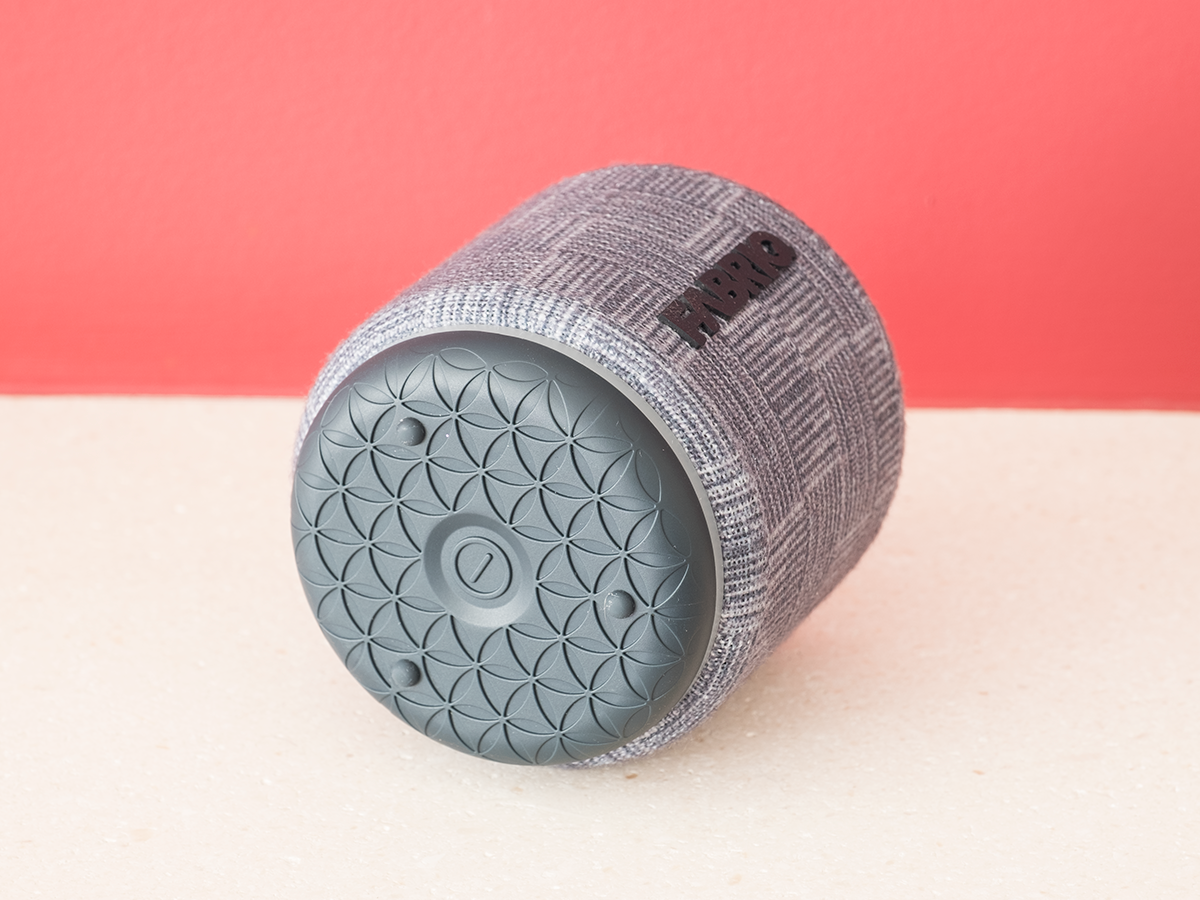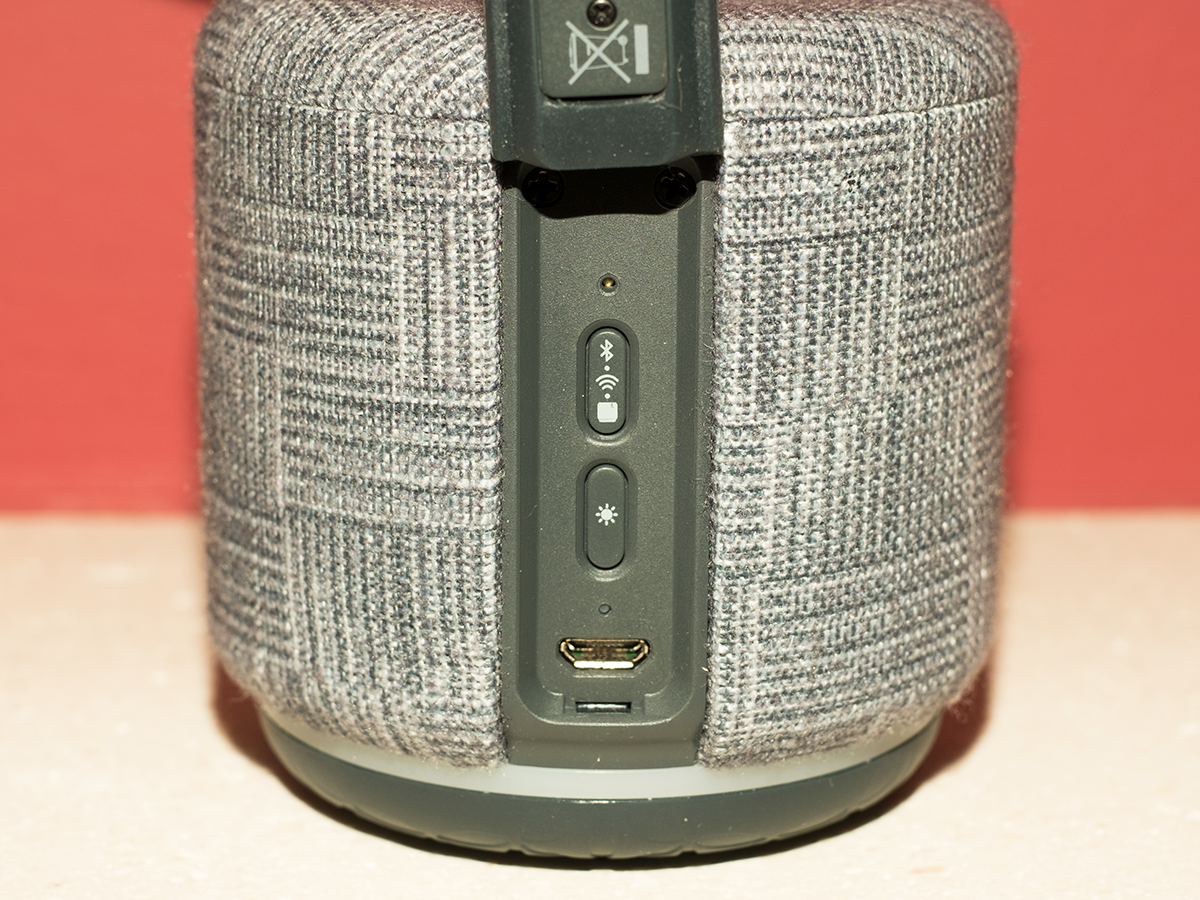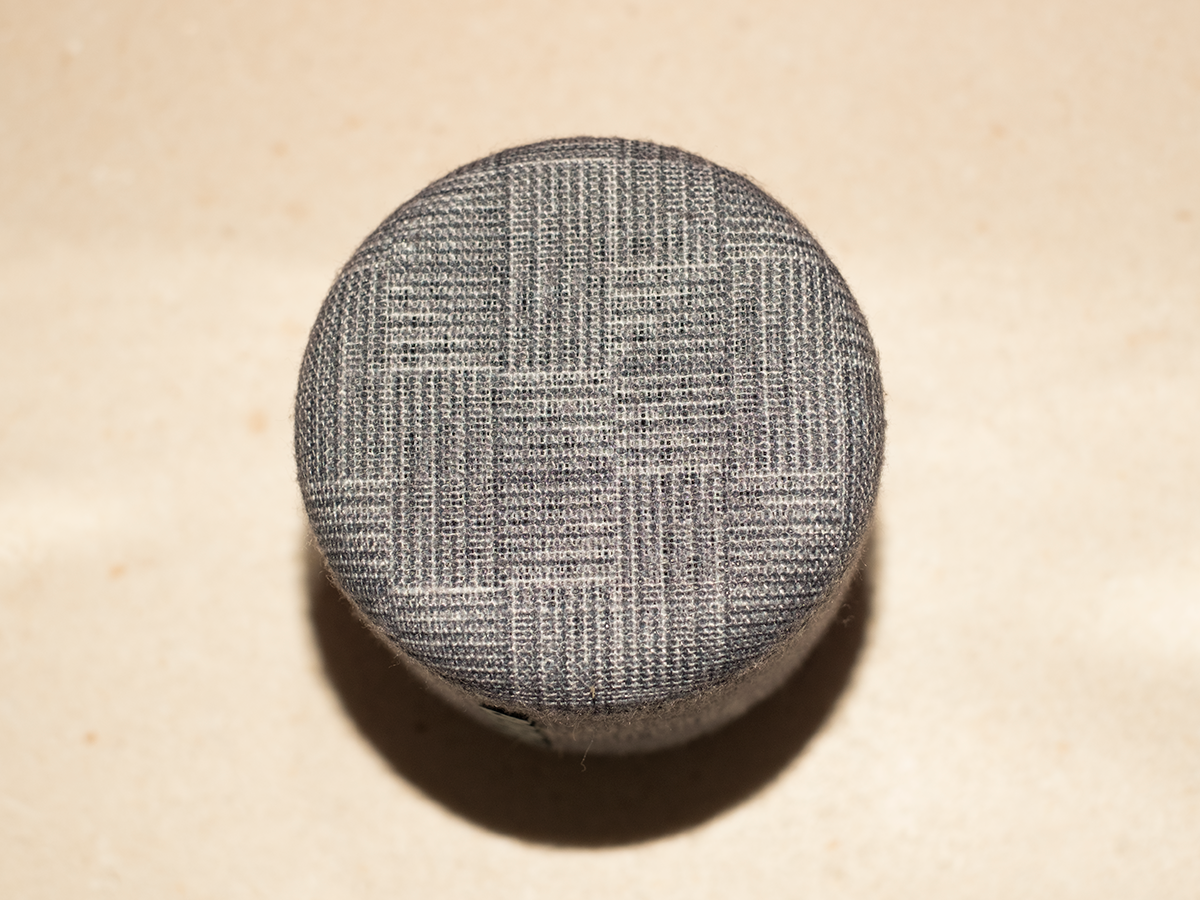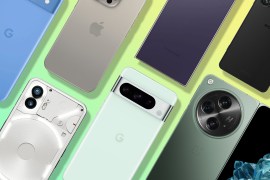Fabriq review
An Alexa-equipped speaker that sounds way better than the Echo Dot
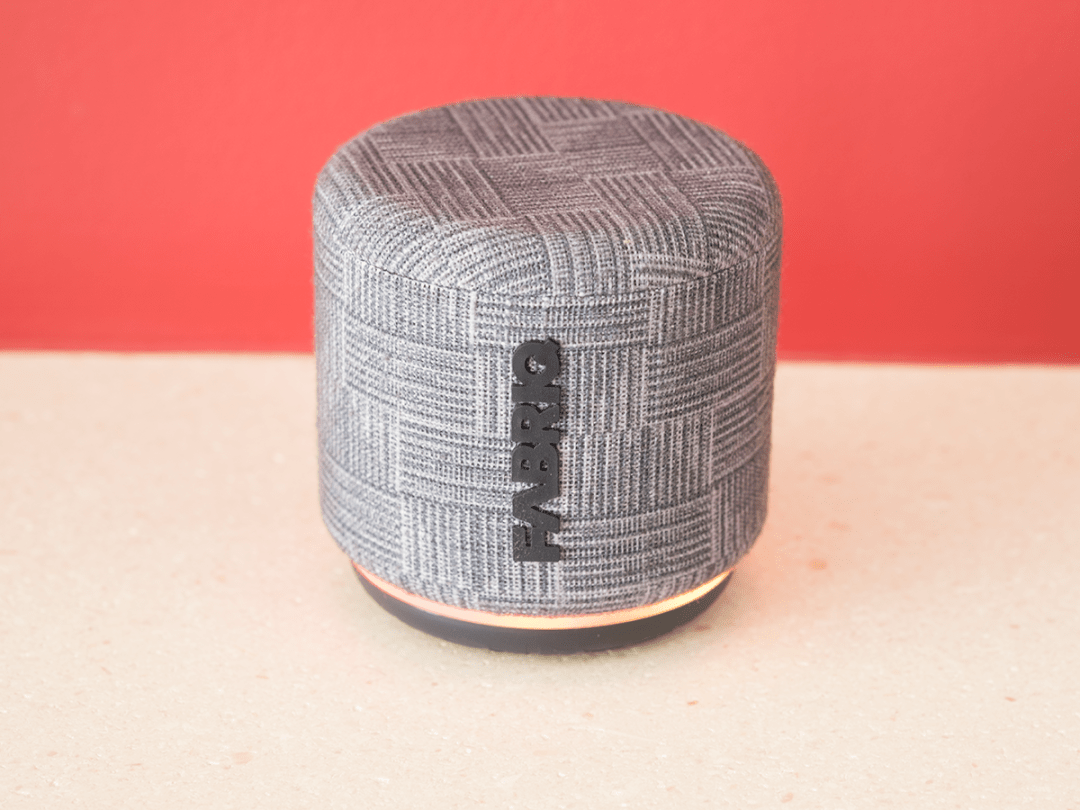
Amazon’s dastardly plot to enslave the world is picking up pace thanks to the growing influence of its Alexa smart assistant. After starting life in the Echo and Echo Dot, Alexa is now to be found inside all manner of other devices: phones, tablets, TV streamers and, yes, Bluetooth speakers.
The Fabriq is one such Bluetooth speaker, and it’s really rather good: at US$50 it costs the same as the Echo Dot, but is portable, more stylish and far better connected, with Bluetooth, Wi-Fi and Apple AirPlay all onboard.
Most importantly, it also sounds far better than the Dot. Whether it’s actually a better buy than the Dot depends on how frustrating you find its various limitations.
Design and build: Solid and subtly stylish
The Fabriq speaker is a much more striking object than the Echo Dot. It’s clad in a carpet-like fabric in one of three designs; my test unit was a subtle grey, but there’s also a tartan red and colourful paint-splattered blue model.
It’s about the same diameter as the Dot, but roughly twice the height; that extra space allows for the Fabriq’s weightier audio setup, which consists of a 2in active driver and 2in passive radiator, and its battery – which Fabriq reckons is good for 5 hours but which I found lasted for about 4, on Wi-Fi at least.
It’s a well-built device, one which you can easily bung into a backpack without fear of harming it. But note that unlike many Bluetooth speakers it’s not waterproof.
There’s a power button on the rubber base, while a rubber flap on the back holds volume, play/pause controls and the microphone for speaking to Alexa. Beneath the flap you’ll find the pairing button, microUSB port and an option to control the Fabriq’s light settings.
Light settings? Yep, the Fabriq has a glowing LED ring around its base which can be set to either display which mode it’s in or to pulsate in time with your tunes. Psychedelic, baby. Unfortunately, it’s not possible to disable the light entirely, and for some reason even when set to the basic mode, the speaker will annoyingly flash about once every minute.
The flap itself is also little annoying, as to charge the Fabriq the flap has to be open – which makes it tricky to press the buttons. But then most people will control it via smartphone, so it’s not that big a deal.
Sound quality: Better than you’d expect
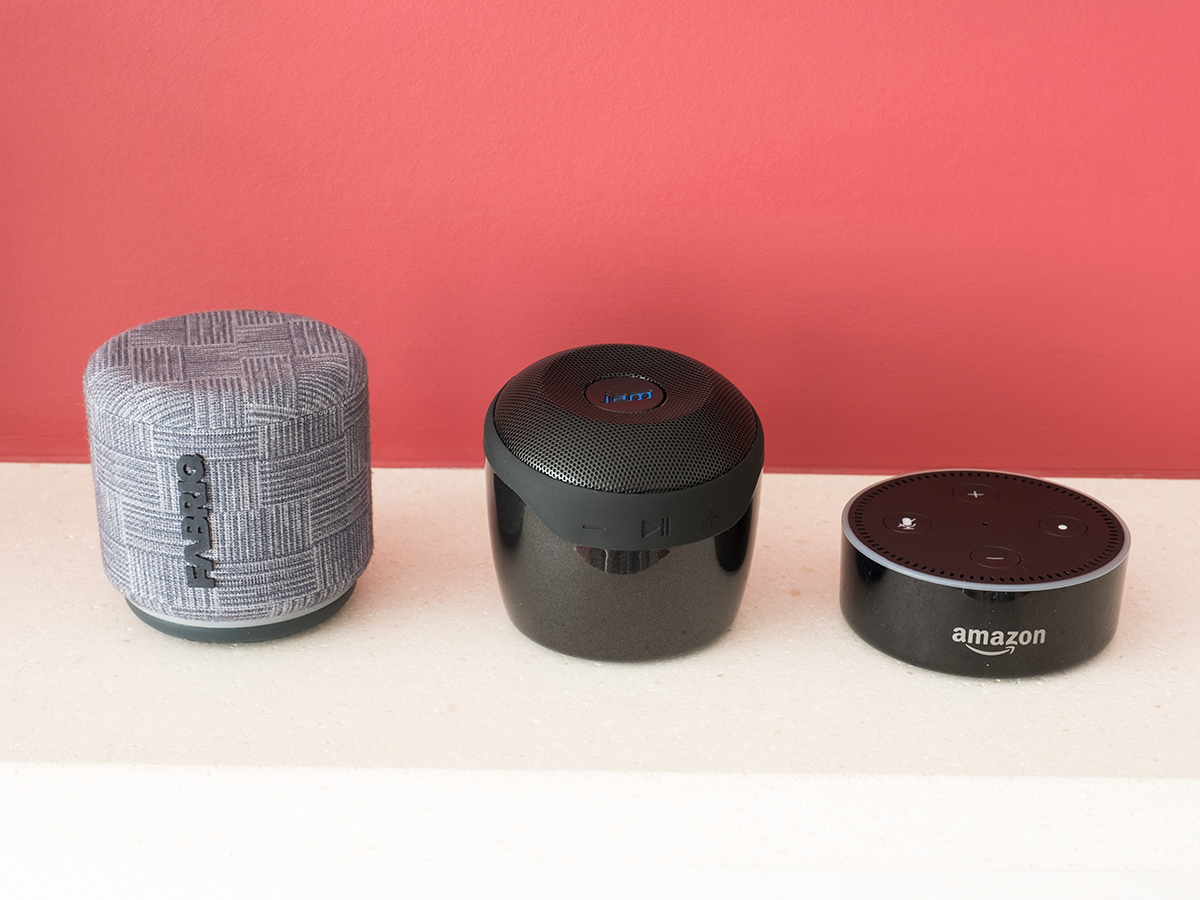
Given that it only costs US$50 – we don’t yet have a UK price but assume it’ll be £50 to tie in with the Dot – you wouldn’t expect too much from the Fabriq’s sound quality. But prepare to be pleasantly surprised, because it’s actually pretty good.
It certainly leaves the Echo Dot for dead, with a far more rounded output and a decent amount of bass. I listened to Slowdive’s self-titled comeback album through it, and it handled the delicate soundscapes impressively, with clear separation between the instruments and a satisfying kick to the drums.
It’s not exactly a bass monster – I tried playing The White Stripes’ Seven Nation Army and it struggled a little with that track’s low-end assault – but there’s enough oomph here to keep all but the most avid dubstep fans happy.
I also compared it to the similarly Alexa-equipped Jam Voice speaker, and again there was no contest: it’s just a much fuller sound. It couldn’t quite hold its own against the full-sized Amazon Echo, which adds more bass and a lot more volume, but then again that speaker costs £150. The Fabriq is way better than the average Bluetooth speaker at this price.
Connectivity: It’s all here
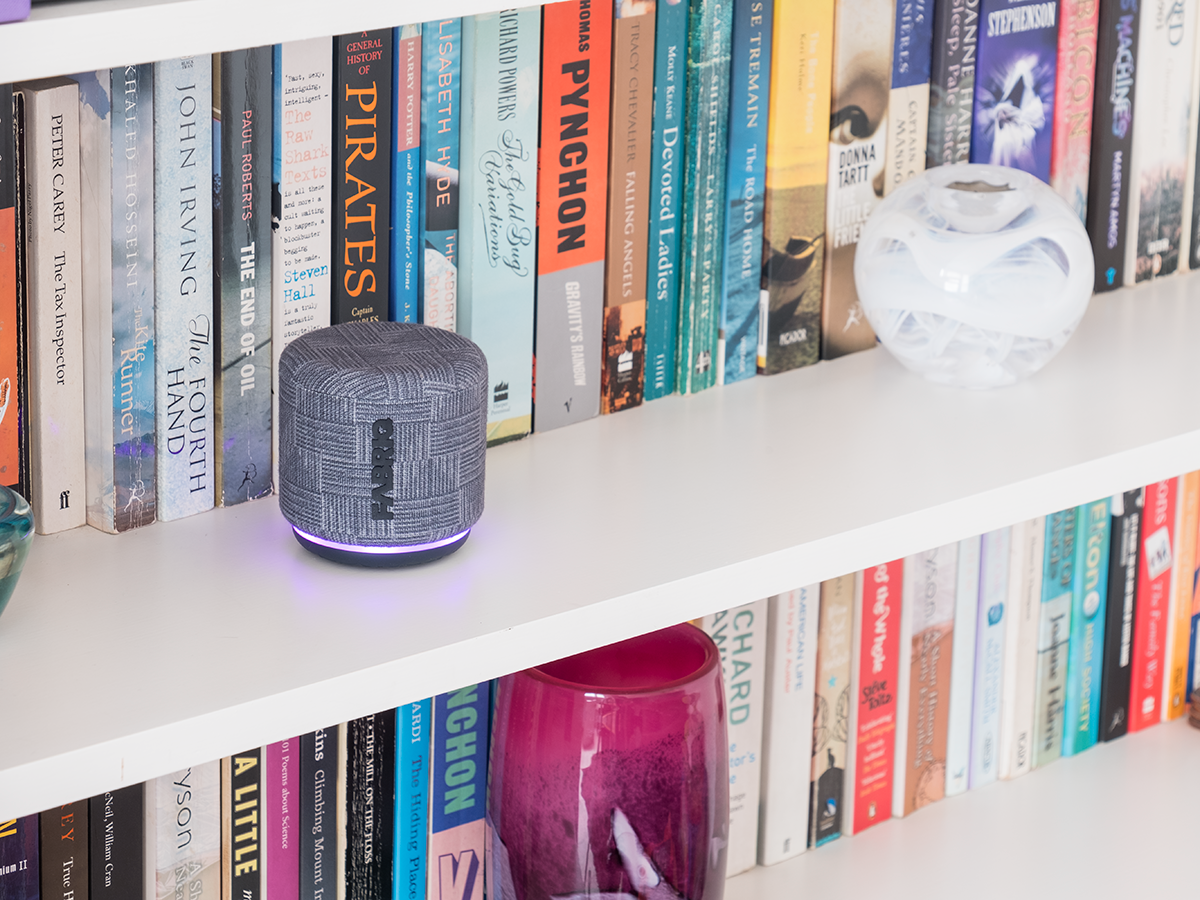
While there are plenty of sub-£50 Bluetooth speakers that sound surprisingly good, only the Fabriq also packs in Amazon Alexa, Wi-Fi and AirPlay. While that makes it quite the polymath, not all of these features work seamlessly.
Bluetooth is fine: you just tap the pair button and hook up via your phone as you would with any device, then forget about it. Wi-Fi is a little more flaky, though. You need the Fabriq app to make the connection, which it generally does quickly, but in the dozen or so times that I tried it over a week it twice failed to find my network at all.
There is a workaround, which involved me connecting to the Fabriq’s own network for pairing purposes, but it’s a bit of a faff. I also found that when I used it on another Wi-Fi network, the app was incapable of reconnecting when I returned home, until I’d factory reset it. None of this is hard to do, but it is a bit annoying.
Once I was hooked up, the connection was generally stable, although I did get the odd drop-out, particularly when using AirPlay. Speaking of which, AirPlay is an unusual inclusion at this end of the Bluetooth speaker spectrum, and a welcome one – particularly if you’re an Apple Music subscriber.
Alexa: No shouting allowed
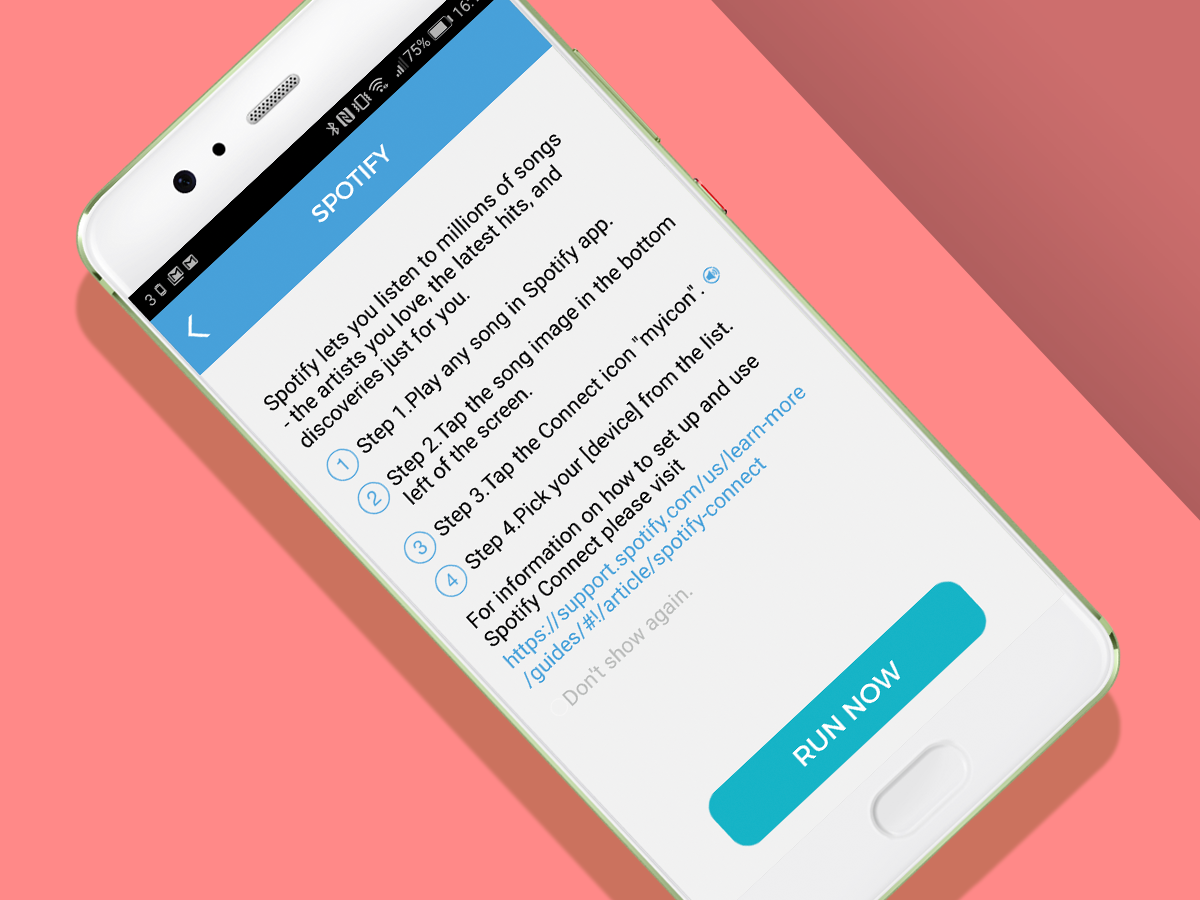
If it didn’t have Alexa or AirPlay baked in, the Fabriq would be a fairly unremarkable Bluetooth speaker. As it is, it’s one of a kind. However I’m not sure how useful the Alexa side of things really is.
There are two problems with it. The first is that you have to press the mic button to get Alexa’s attention. This could be seen as a good thing – it means Alexa’s not listening to everything you say and it presumably also improves battery life – but it also means you can’t just shout out song requests at it from the other side of the room.
I use my Echo Dot all the time – for music, for controlling my lights and heating, for getting weather reports and setting reminders. Alexa’s not infallible, but she’s far more useful than I ever guessed she would be. But the voice control is a large part of that, and having to press a button first makes it a lot less instant.
The second issue is almost as big a deal: on the Fabriq, Alexa can’t play songs from third-party sources such as a Spotify. Sure, you can stream to the speaker via Spotify Connect from your phone or laptop, but then you can do that with any Bluetooth speaker.
Alexa can of course play directly from Amazon Music, but unless you’re paying for a full subscription the library is limited, and I was regularly greeted with the message that to listen to my track of choice I’d need to upgrade my subscription. On the Echo or Echo Dot, meanwhile, Alexa will happily play from any linked Spotify account.
Fabriq Bluetooth speaker with Alexa Verdict
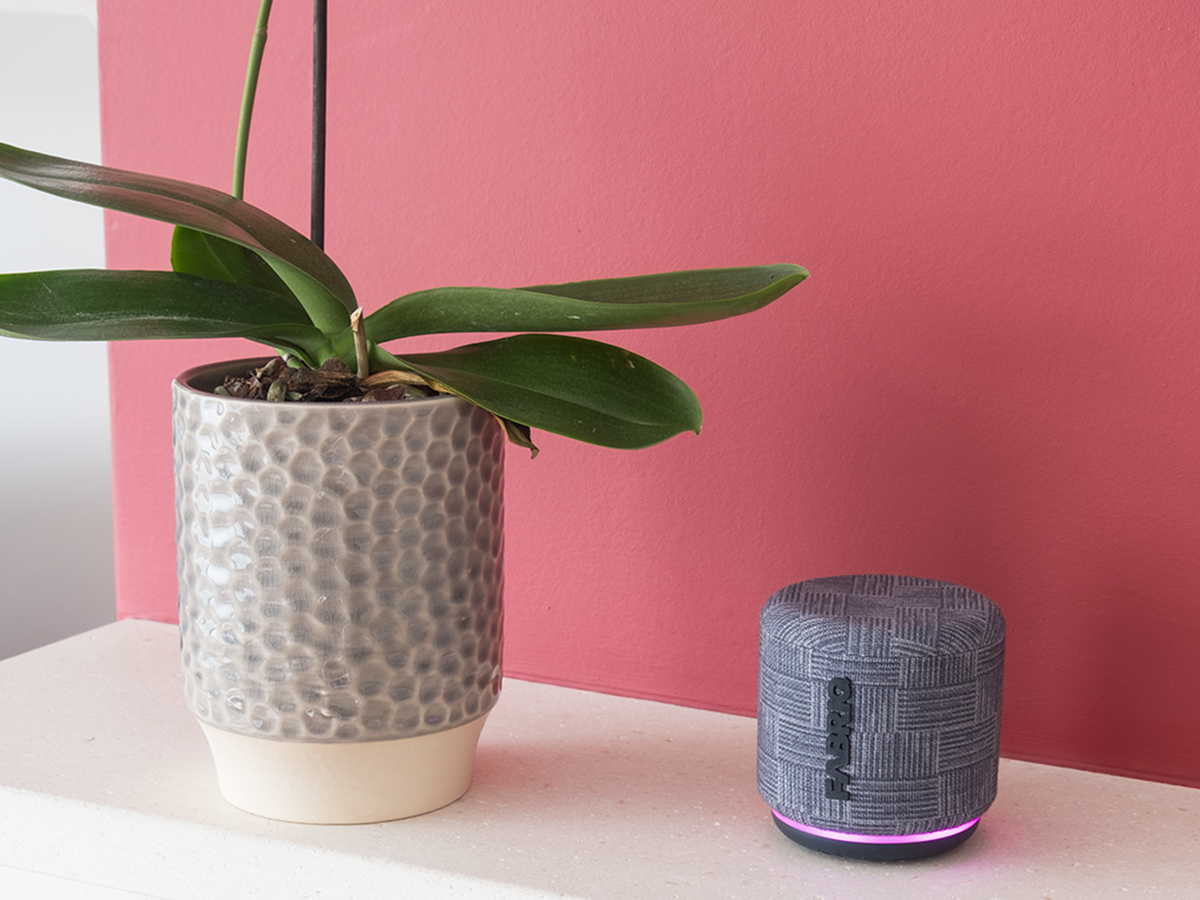
The Fabriq speaker gets a lot of things right but falls just short of being essential in any area.
It sounds way better than the Echo Dot or the similarly Alexa-equipped Jam Voice, and isn’t far off the full-sized Echo. However, there are better Bluetooth speakers available for not much more, for instance the £65 UE Roll 2 or £70 Jam Heavy Metal. If sound quality is your main concern, I’d spend the extra £15-£20 on one of them.
Similarly, the fact that it has Alexa built in seems like a wonderful feature to have, but the implementation is too limited for it to actually replace an Echo. Trust me, you want full voice control to get the most from Alexa, not to have to press a button.
What you’re left with, though, is a really well priced speaker that does loads of different things and does them all pretty well. So if you want an all-rounder, or absolutely need to take Alexa out of the home, then the Fabriq is a really good choice.
Stuff Says…
It won’t quite replace an Echo, but the Fabriq is the best portable Bluetooth speaker with Alexa built in so far
Good Stuff
Decent sound in a small package
Loads of connectivity options
Built-in Alexa
Good price
Bad Stuff
Not the bassiest
Alexa can’t play from Spotify etc
Alexa is tap-to-speak
Battery life a bit poor
